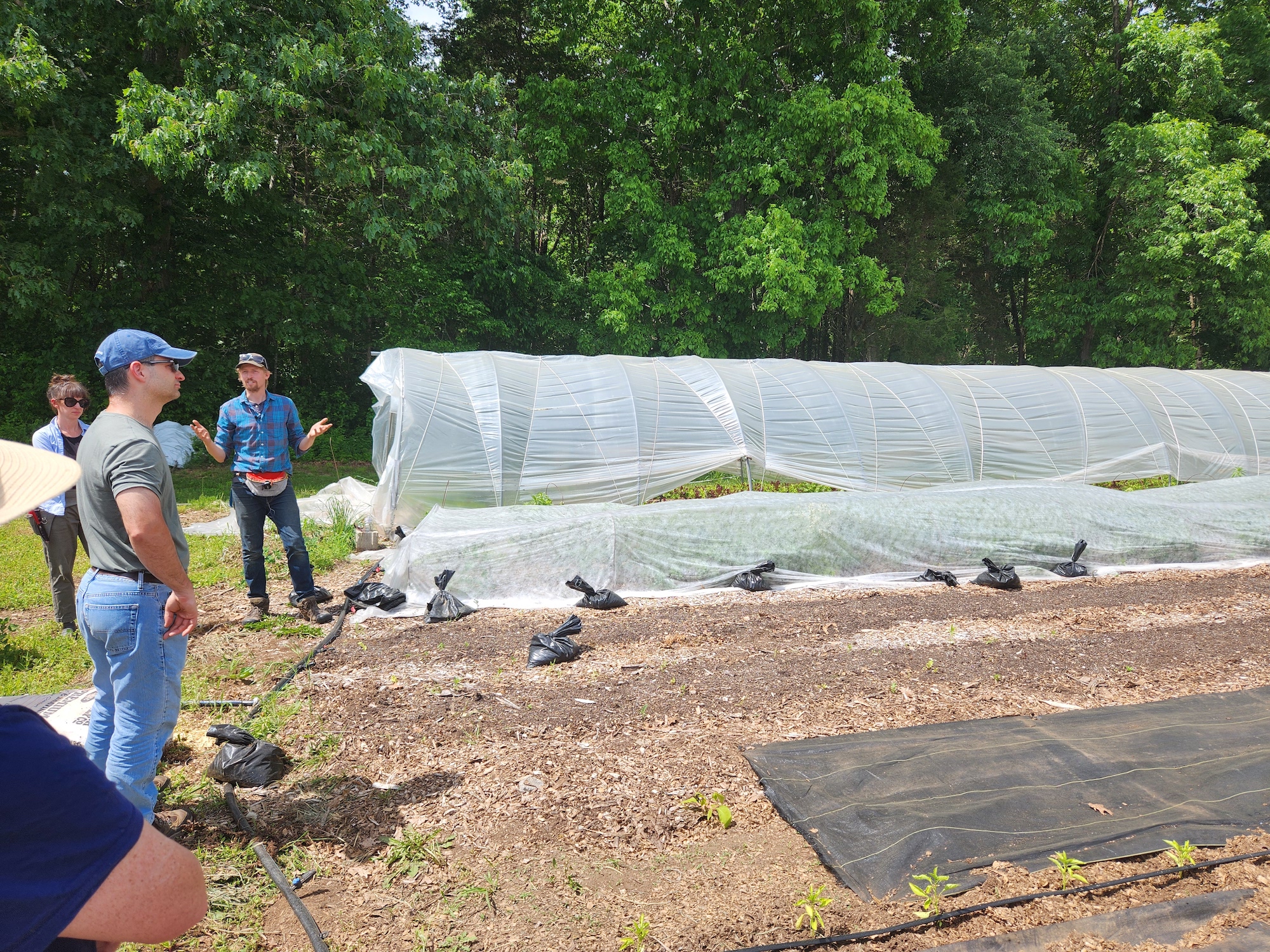Solid Ground Supports Beginning CT Farmers for Over a Decade
Solid Ground, UConn Extension’s program to support beginning farmers in the state, has received a grant that will allow the program to continue and expand its work.
UConn is one of 45 institutions across the country that has received funding from the USDA-NIFA Beginning Farmer and Rancher Development Program, which is designed to provide those who have been farming for less than 10 years with training to help them succeed. The total funding for the program’s current cycle is $27.9 million across all institutions.
Solid Ground is co-directed by Jiff Martin, food systems extension educator, and Robert Chang. Chang owns and operates Echo Farm in Woodstock and is the policy co-director for Northeast Farmers of Color Land Trust.
“The idea is that the next generation of agricultural producers needs targeted investment in training,” Martin says. “That could run the gamut from learning how to find farmland to managing a farm business, developing financial record keeping skills, managing farm crews, implementing climate smart practices – you name it.”
Solid Ground, housed in the College of Agriculture, Health and Natural Resources, began in 2012. The program has continuously received funding every three-year cycle since then including the most recent award of $747,859.
“For the early-stage farmers, we hope they gain the skills and knowledge to launch their farm businesses successfully, to avoid some of the mistakes that you might make if you didn’t have an opportunity to access our trainings,” Martin says. “For the more advanced-stage farmers, we hope to support them so that they can scale up and remain viable despite the many challenges that all farm businesses face and help them through that growth spurt.”
Solid Ground’s programming includes trainings on agricultural mechanics, the business of farming, climate smart practices, skill shares between farmers, and accessing grant funds, as well as free one-on-one consultations with extension educators and consultants.
The programming includes cohort-based courses as well as one-time workshops where farmers can acquire a new skill in a single event. Last year, 350 beginning farmers took part in Solid Ground’s trainings.
In collaboration with New Connecticut Farmer Alliance, Solid Ground sponsors a “farmer-to-farmer” conference annually and peer-learning farmer circles where farmers can share knowledge, resources, and experiences with one another. This year’s conference will be held on Jan. 25, 2025.
“These are spaces where farmers can be mutually supportive which is really critical for the resiliency of the agricultural community,” Martin says. “Whether you’re a new farmer or an old farmer, those relationships can be vital when you fall on hard times.”

Many members of the Solid Ground leadership team are part-time farmers themselves.
“They all bring tremendous knowledge and relevant lived experience to help inform and guide the trainings, so that the trainings are meaningful for farmers,” Martin says.
Going forward, one major goal for Solid Ground is to continue implementing and expanding its trainings on “climate smart” practices.
Climate smart practices for farming include maintaining soil health with low- or no-till practices, water management, creating microclimates using agriculture covers, energy efficiency, and renewable energy options. These practices help farmers be better prepared to address climate change-related events such as abnormal weather patterns and increased pest and disease pressures.
“Climate smart practices require being super attentive to what the land is capable of doing and designing your farming practices to maximize what the land is capable of doing and continue to enhance that, all while being better prepared to handle climate-related weather events,” Martin says. “Because our climate is different than it was 20 years ago, farmers have to farm differently and farm more strategically.”
Solid Ground also helps connect farmers with funding opportunities to implement climate smart practices in their operations.
Solid Ground is also translating their video trainings into Spanish to increase the accessibility of their work beyond the English-speaking community.
Martin says the program also aims to support farmers who are no longer in the first stages of operating a farm and have begun hiring employees to help operate the farm.
One new offering is the Farm Manager Summit, which will be held for the second time on Jan. 29, 2025.
“We’re pretty excited about the Farm Manager Summit,” Martin says. “It’s a new offering for us and it’s targeting a new audience – the more-seasoned farmers.”
Latest UConn Today
- Three Business Students Attend Top International Climate Conference: A Once-In-A-Lifetime Experience“COP 29 ticks all the boxes: international travel, cultural awareness, and growth through exposure to and interaction with critical real-world issues,’’ said Arminda Kamphausen, director for Global & Sustainability Initiatives.
- UConn Nursing Graduates its Largest BS/CEIN Nursing Class147 students received their bachelor’s of science in nursing during the December 2024 CEIN commencement
- School of Pharmacy’s Bodhisattwa Chaudhuri Named AIChE FellowBodhisattwa (Bodhi) Chaudhuri, a professor in the Department of Pharmaceutical Sciences at the School of Pharmacy, Department of Chemical and Biomolecular Engineering, and Institute of Materials Science (IMS), has been named a Fellow of the American Institute of Chemical Engineers (AIChE).
- UConn Firsts: The First Brick Building on CampusThanks to the efforts of President Rufus Stimson, Storrs Hall was built as the first brick building on campus
- A Many-Horse Town: UConn Equine Program Offers Diverse Programming for Students, CommunityUConn's equine program has a long legacy that continues to expand
- UConn to Collaborate with Saudi Arabia’s KAUST on Innovation, Commercialization Initiatives'Both institutions are investing in translational research that produces scalable solutions for contemporary societal problems'













